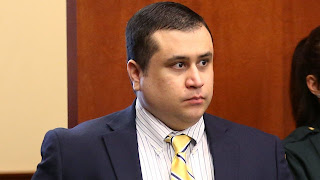(Warning:
this is a long piece. Please stay for the whole bit, though.)
In
the days following the Supreme Court’s decision on the Voting Rights Act, I was
absolutely furious every unoccupied minute of the day. If I wasn’t engrossed in
reading, writing, working with students, or training, I was stewing in my
anger, completely incapable of articulating any kind of reasoned and
unemotional response.
 | |||
| Rep. John Lewis, former chairman of SNCC, and Rep. John Conyers had strong reactions to the decision. |
Thankfully,
many folks have written excellent pieces on the decision and all the reasons
why it is so asinine.
There
really is no need to articulate another argument against the decision. Justice
Ginsberg, writers at Colorlines, and
even the folks over on The Daily Show,
as well as numerous people of color with presences in social and traditional
media and teachers and citizens across the country have illustrated myriads of
reasons why the decision was wrong. So let it be said that I agree with this
general position.
One
thing I would like to say, however, is that I think we should refuse to accept
the burden to “prove” that “racism still exists,” because that burden is placed
on the shoulders of anti-racists by the very assumption that the claim is
somehow contestable – like there is legitimate reason to believe otherwise.
This
is a direct parallel to the VRA case. In their ruling, the SCOTUS left in place
the option for people to sue after the
fact if they believe voter discrimination had taken place. This places the
burden on the individual being disenfranchised (i.e. the individual who is
already being disempowered by the power dynamics of race) to prove to the
satisfaction of institutions of power that discrimination took place. Not only
does this allow the problem to continue by adjusting the temporality of the
problem-solving strategy from one of prevention to one of reaction (which in
the end isn’t a problem-solving strategy at all!), but it continues the
practice of placing the burden of proof on those arguing for an already
marginalized form of knowledge. In the real world, epistemologies cannot be separated
from power dynamics, and this is directly reflected in where we place the
burden of proof in these cases of voter discrimination and these discussions of
racism.
 |
| This guy is the guy on trial. He is not Trayvon Martin. |
Not the Trayvon
Martin trial. Trayvon Martin is not on trial. He is dead.
But
actually, he kind of is on trial. You see, while what this case is trying to
decide is whether or not Zimmerman is guilty of murder, it has also become a
performance where his defense attorneys try to convince the jury that Martin
was assaulting Zimmerman and the latter therefore had a right to kill Martin in
order to stop him.
Let
this sink in for a second: Nobody debates the fact that Zimmerman killed
Martin. Nobody debates the fact that after
being told not to follow Martin, Zimmerman pursued the boy anyway. Yet, what
the entire defense rests on is proving that Zimmerman was justified in killing
Martin.
How
to do that? By drawing on hegemonic epistemologies, based on dominant cultural
narratives, that say that (young) black men (or teenagers) are inherently
violent. Therefore, despite being older, stronger, much bigger, and much more
armed for combat than Martin, according to this epistemology it was totally reasonable
that Zimmerman – after being the one to follow Martin and therefore being the
one whose actions made conflict possible in the first place – be afraid of Martin.
Afraid enough that he’d have to stand his ground.
(Michael Denzel Smith makes this point, but does it better, in his article on The Nation.)
I
wonder… if Martin had been armed with a gun instead of Skittles and Iced Tea,
and he killed Zimmerman because, well, the creepy neighborhood-watchman who was
twice his size (yes, exaggeration – get over it) was following him when all he
was doing was minding his own business and therefore felt threatened and
frightened, would folks be as willing to believe Martin was Standing his
Ground?
I’ll
answer my own question. No.
And
yes, the reason is because he was a black boy wearing a hoodie in a neighborhood
where he “shouldn’t have been.”
Also,
read this article by Sergi Avteniev on the scrutiny and racism aimed at Rachel
Jeantel. I really can’t say it any better than he does, so please go read it.
But
what does this have to do with the SCOTUS’s VRA decision, right? I mean,
besides the courtroom setting.
What
we are witnessing in these two cases is the relationship between law and
blackness in the United States. And this relationship can be summed up by the
phrase “anti-blackness.”
Since enslaved Africans were designated as 3/5s of a person in the legal document that founded our
current government, black subjecthood has forever been on unequal terms with American
subjecthood (to echo a powerful piece from March by Ta-Nehisi Coates, What does it mean
to have never been meant to be a part of the American story?). Blackness is
always on trial. Blackness always bears the burden of proof. Blackness is
always expendable, and yet is also always necessary.
The
Voting Rights Act was one instance of hope. One way of offering, if not
protection, then meaningful difference (to draw on Toni Morrison’s novel, A Mercy). And when the Supreme Court of
the United States decided we didn’t need its most important and powerful
provision anymore, they decided that blackness had once again gotten too
close to full inclusion in American civil existence. Thus, the borders were
retracted.
And celebration followed.
No comments:
Post a Comment